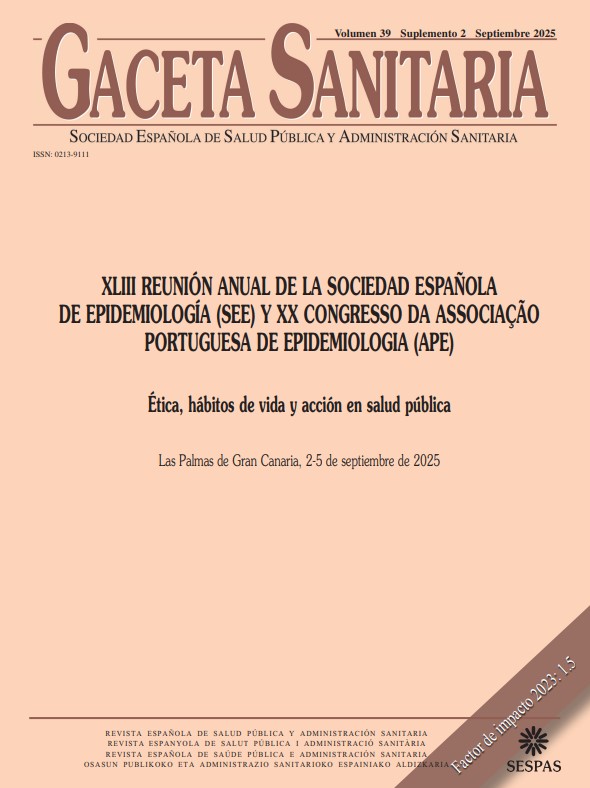419 - EFFECTIVE INTERVENTIONS TO PREVENT BINGE DRINKING, TOBACCO, AND CANNABIS USE IN UNIVERSITY STUDENTS: A SYSTEMATIC REVIEW
University of Navarra; University of Barcelona; Institut Català d’Oncologia; IDIBELL.
Background/Objectives: Substance use represents a significant public health concern. Alcohol, tobacco, and cannabis represent major modifiable health risk factors for morbidity and mortality. University students are particularly susceptible to initiating these addictive behaviors due to academic pressure, psychosocial stress, and the transitional nature of university life. Despite the high prevalence of co-use in this population, no systematic review to date has evaluated interventions specifically targeting this issue. This systematic review seeks to address the knowledge gap by evaluating the effectiveness of face-to-face interventions to reduce alcohol, tobacco, and/or cannabis use among university students.
Methods: A systematic search (PROSPERO: CRD42023495209) was conducted in PubMed, PsycINFO, and CINAHL for studies published within the past 15 years, up to December 2023. Eligible studies included: in-person interventions aimed at reducing binge drinking, tobacco, and/or cannabis use among university students (18-24 years), tested with an experimental design with at least one control group, and published in Spanish or English. Primary outcomes included reductions in drinks per week, binge drinking episodes, alcohol-related harms, tobacco cessation and quit attempts, and cannabis use. Methodological quality was assessed with JBI tools. Data extraction and synthesis adhered to PRISMA guidelines, utilizing Covidence for study management.
Results: Of 1,403 studies screened; 21 met inclusion criteria. Seventeen were from North America; all were randomized clinical trials, except two with quasi-experimental design. Among the 17 alcohol-focused studies, face-to-face brief motivational interviewing with personalized feedback –particularly within the BASICS program–consistently reduced binge drinking compared to no intervention or standard care. In four tobacco-related studies, motivational interviewing and contingency management were most effective in reducing tobacco use. No cannabis-specific interventions met inclusion criteria; one study targeted both alcohol and cannabis, and none reported sex-specific results.
Conclusions/Recommendations: This review identifies motivational interviewing as an effective strategy for reducing binge drinking and tobacco use among university students. While its benefits for individual substances are well-established, its impact on the co-use of alcohol, tobacco, and cannabis requires further investigation. Future interventions for university students should be person-centered, context-aware, and gender-sensitive.















